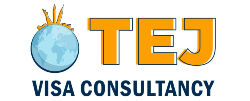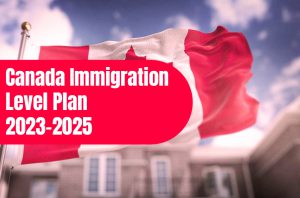Sean Fraser announced ‘new measures to improve Canada family class immigration’

Improvements in Canada Family Class Immigration
- IRCC (Immigration, Refugees and Citizenship Canada) has introduced a new measures that grants open work permits to spouses, dependent children who reside in Canada with temporary resident status.
The new measures include:
- Faster temporary resident visa (TRV) processing times for spousal applicants
- New and dedicated processing tools for spousal TRV applicants
- A new open work permit for spousal and family class applicants
- Open work permit extensions for open work permit holders expiring between August 1st and the end of 2023
- Fraser began the announcement by explaining that family members from visa required countries who have submitted family class permanent residency (PR) applications can apply for Temporary Resident Visas (TRV) to join their sponsor in Canada.
- He said that far too many are refused on the basis that they are unlikely to return home, despite the fact that an overwhelming majority are approved for permanent residency when their application is finally processed. Fraser continued by saying that IRCC has successfully eliminated the backlog of TRV applications for family members who already have a permanent residency application being processed. IRCC’s new approach towards spousal TRV applications has approved more than 98% of applications for spouses and their kids, so that they can be with their families while they await the processing of their PR applications.
- Going forward, Fraser said this new approach to processing TRV applications will lead to processing times of within 30 days. Family members will be able to travel to Canada more quickly and be with their loved ones sooner. IRCC is also launching a new initiative that will issue open work permits to spousal applicants and their dependent children who reside with their sponsor in Canada and have temporary resident status. Spouses, partners and dependants are able to apply for and receive an open work permit as soon as they submit a complete permanent residence application under the spouse or common-law partner in Canada class (SPCLC) or other family class programs. These open work permits were previously only allowed for the inland spousal program and is now being extended to those who are applying outside Canada.
- Furthermore, starting from June 7th, open work permit holders whose permits are expiring between August 1st and the end of 2023 will have the opportunity to extend their permits for 18 months through a simplified and free application process. This extension will benefit approximately 25,000 individuals currently in Canada and eligible to work, including spouses and dependents of most temporary workers, spouses of international students, and individuals who have applied for permanent residency and are awaiting finalization, along with their spouses and dependents.
Family Class Immigration in 2023
- Family class immigration holds the position of being the second largest category in Canada’s Immigration Level Plan. In the year 2023, Canada has set a target of welcoming 106,500 newcomers through the family class category. Among them, 78,000 individuals are expected to arrive under the spouses, partners, and children category, while 28,500 individuals are anticipated to arrive under the parents and grandparents category. Looking ahead to 2025, Canada aims to increase the number of newcomers through family-class immigration to 118,000.
What is family class sponsorship?
- Canada offers sponsorship programs for permanent residents or citizens of Canada that wish to bring their loved ones to Canada. These programs allow certain family members to become permanent residents of Canada. One of the most popular streams of Canadian immigration, family sponsorship programs makes it easy for citizens and permanent residents to bring their spouse and immediate family members to Canada with reduced processing times because Canada knows that family should never be put on hold.
- Spouses, common law and conjugal partners, children, parents and grandparents may all be sponsored, provided they meet the required eligibility criteria.
- Once the sponsorship application is approved, the sponsored family member can obtain permanent resident status in Canada, allowing them to live, work, and study in the country. This program enables families to be reunited in Canada, promoting social cohesion and support within the community.
Who is eligible to sponsor a family member?
To sponsor a family member, you must meet minimum eligibility requirements. Eligible sponsors must:
- Be a Canadian citizen or permanent resident
- Be at least 18 years old
- Live in Canada, or plan to return to Canada once your spouse or partner becomes a permanent resident of Canada
- Be able and willing to provide for the basic financial needs of your family member for three years






